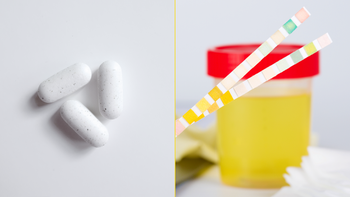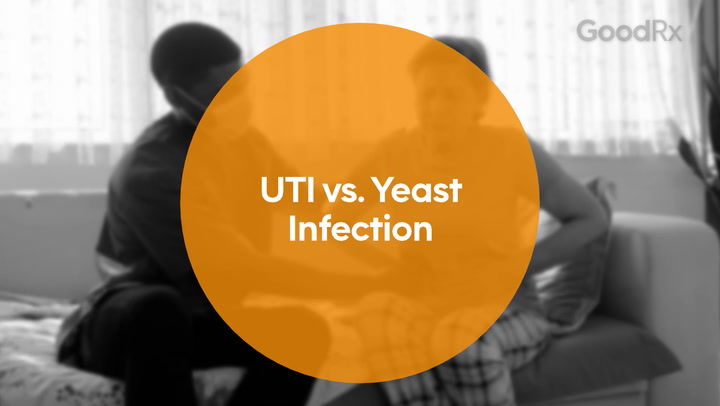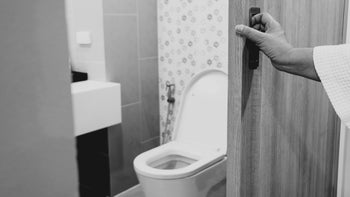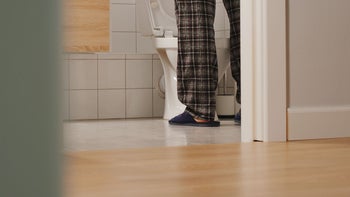
The 5 Best Drinks When You Have a UTI (Plus 3 Drinks to Avoid)
Key takeaways:
Urinary tract infections (UTIs) include bladder and kidney infections that are treated with antibiotics. Drinking fluids helps people recover from a UTI.
The best things to drink when you have a UTI are water, low-sugar electrolyte drinks, and unsweetened cranberry juice.
You should avoid drinks that can irritate your bladder when you have a UTI like caffeinated beverages, acidic drinks, and alcohol.
Most people know exactly when they’re developing a urinary tract infection (UTI). Common UTI symptoms are hard to miss, like pain or burning with peeing and the urge to go more often.
Starting treatment with an antibiotic is usually the fastest way to feeling better. But what you drink when you have a UTI also helps you respond to your treatment. Here are the best things to drink when you have a UTI, plus a few you should avoid.
What’s the best thing to drink when you have a UTI?
Drinking plenty of fluids helps you recover from a UTI. Drinking liquids and making more urine helps flush bacteria out of your urinary system faster. Staying hydrated also helps your immune system perform at its best. This lets you fight off your infection and recover more quickly.
Search and compare options
But when you have a UTI, some drinks are better for you than others. Here are four drinks to try.
1. Water
Water should be your go-to when you have a UTI. It keeps you hydrated without any added sugar or chemicals. Plus, if you have a fever, water also helps replace the fluid your body loses from overheating.
Another benefit: If you’re prone to UTIs, there’s evidence that drinking more water can lower your risk of developing UTIs in the future. In one study, women who had uncomplicated bladder infections increased their water intake by 1.5 L each day. These women were less likely to develop UTIs than those who drank less water each day.
2. Electrolyte drinks
Premade electrolyte drinks contain electrolytes, water, and sugar. They may not be the best option for everyday hydration. But electrolyte drinks can help if you have a UTI. When you’re sick, you lose water and electrolytes faster than usual. If you have nausea and vomiting, you lose water and electrolytes too.
Most people can keep up by drinking water alone. But if you’re experiencing vomiting or diarrhea, or you can’t imagine eating while you’re feeling sick, consider electrolyte drinks.
3. Unsweetened cranberry juice
Studies show that cranberry products can help prevent UTIs. It’s not clear if drinking cranberry juice when you already have a UTI will make it go away faster. But some people feel better if they drink cranberry juice when they have a UTI.
Does cranberry juice really help? Learn more about this home remedy and if it can treat your urinary tract infection (UTI) symptoms.
Looking to treat your UTI at home? Find out if you can really get rid of a UTI without antibiotics.
Understanding UTI symptoms: Three women describe what a UTI feels like and what you can expect.
Science has yet to prove whether it’s the cranberry juice or drinking extra fluids that makes people feel better. But if you enjoy cranberry juice, you can drink it while taking any antibiotics you may have been prescribed for your UTI. Make sure to stay away from cranberry cocktail juice, which is high in sugar.
4. Probiotic yogurt drinks
Probiotics are “good” bacteria that have many health benefits. Lactobacillus is a “good bacteria” that lives in the genital area. It may help keep “bad” bacteria like E. coli from growing and causing UTIs.
There’s no evidence that probiotics can treat a UTI. But probiotics can help rebuild your natural microbiome. And there’s evidence that they can help you avoid diarrhea from taking antibiotics for UTI treatment.
You can try adding a probiotic yogurt drink to your daily fluid intake when you’re taking antibiotics. Just make sure you aren’t only relying on probiotic drinks — they won’t have enough water to keep you hydrated. Also, probiotic drinks aren’t all the same, so make sure to check the label for Lactobacillus.
5. Green tea
Green tea has many health benefits, like lowering your blood pressure and improving your blood sugar. Some research suggests that green tea might also help fight UTIs. Most of the health benefits from green tea can be traced to compounds called polyphenolic catechins. These compounds have been found to have antibacterial effects on E. coli — the bacteria that causes UTIs most of the time.
Keep in mind that while green tea has plenty of helpful compounds, it also contains caffeine. And caffeine should generally be avoided when you have a UTI. For this reason, decaffeinated green tea could be a better choice when you have a UTI.
What drinks should you avoid if you have a UTI?
Some fluids can do more harm than good when you’re fighting off a UTI. Try to avoid these drinks when you have a UTI. They can make you feel worse.
1. Caffeinated drinks
Drinks with caffeine can make you feel worse when you have a UTI, such as:
Coffee
Tea
Soda
Caffeine stimulates the bladder and makes you pee more often. Caffeine can also irritate your bladder. If you have a UTI, this can make symptoms like painful or frequent urination worse.
If you really need caffeine to make it through the day, you can still drink it if you have a UTI. Just try to limit how much you drink.
2. Alcohol
Like caffeine, alcohol can irritate your bladder and worsen UTI symptoms. Alcohol makes you pee more often. This can lead to dehydration, which will make it harder for your body to fight off an infection. It will also make you feel worse.
If you have a UTI, it’s best to avoid alcoholic drinks until you’ve completed your prescribed antibiotics. Alcohol can interact with antibiotics used to treat UTIs and make them less effective. So, your antibiotics may take longer to work (or not work at all). This means you may feel sicker longer. Alcohol can also lead to serious side effects when mixed with certain antibiotics.
Limiting alcohol may also help prevent future UTIs. Heavy alcohol use can increase the risk of UTIs because alcohol can interfere with the immune system.
3. Acidic fruit drinks
Many people report acidic fruits can increase bladder irritation. There isn’t strong evidence to prove it though. Nonetheless, you may want to avoid these acidic juices while taking antibiotics:
Orange
Grapefruit
Lemon
Lime
Once you’re over a UTI, you can add these fruits back to your diet. They’re powerful sources of vitamin C, an antioxidant that can help boost your immune system.
How long does a UTI last?
Most people start feeling better within 1 to 2 days after starting an antibiotic. But it takes longer for the infection to be fully treated and go away.
Make sure to take all the antibiotics you’re prescribed. Some antibiotic courses are shorter than others. You may need to take antibiotics for 3 to 14 days.
Frequently asked questions
Antibiotics are the fastest way to clear up UTIs. Most UTI symptoms will improve within 36 hours of starting an antibiotic.
About 1 in 4 UTIs will go away on their own without antibiotics. But it can take a week or longer for UTI symptoms to get better without antibiotics. Antibiotic treatment also lowers the risk of developing a kidney infection and other UTI complications. People who are pregnant or have a weakened immune system should take antibiotics right away if they have a UTI.
Vulvovaginitis (inflammation of the vagina or vulva) and sexually transmitted infections (STIs) can feel similar to a UTI. Both conditions cause pain or burning with peeing.
The bottom line
Drink plenty of fluids when you have a UTI. Staying hydrated can help you recover while you’re taking antibiotics. Try drinks like water, electrolyte drinks, and cranberry juice. But try to avoid caffeinated drinks like coffee, tea, and energy drinks because they can make your UTI symptoms worse. It’s also a good idea to skip alcohol while you’re sick. Alcohol can cause dehydration and interact with antibiotics, leading to serious side effects.
Why trust our experts?


References
Bergamin, P. A., et al. (2017). Non-surgical management of recurrent urinary tract infections in women. Translational Andrology and Urology.
Colgan, R., et al. (2011). Diagnosis and treatment of acute uncomplicated cystitis. American Family Physician.
Herness, J., et al. (2020). Acute pyelonephritis in adults: Rapid evidence review. American Family Physician.
Hooton, T. M., et al. (2018). Effect of increased daily water intake in premenopausal women with recurrent urinary tract infections: A randomized clinical trial. JAMA Internal Medicine.
Maserejian, N. N., et al. (2013). Intake of caffeinated, carbonated, or citrus beverage types and development of lower urinary tract symptoms in men and women. American Journal of Epidemiology.
McCollum, B. J., et al. (2020). PURLs: Can drinking more water prevent urinary tract infections? The Journal of Family Practice.
MedlinePlus. (2023). Fluid imbalance.
Mergenhagen, K. A., et al. (2020). Fact versus fiction: A review of the evidence behind alcohol and antibiotic interactions. Antimicrobial Agents and Chemotherapy.
National Institute on Aging. (2022). 15 tips to keep your bladder healthy.
Pitts, T. O., et al. (1986). Urinary tract infections and renal papillary necrosis in alcoholism. Recent Developments in Alcoholism.
Reygaert, W., et al. (2013). Green tea as an effective antimicrobial for urinary tract infections caused by Escherichia coli. Frontiers in Microbiology.
Townsend, M. K., et al. (2012). Acidic fruit intake in relation to incidence and progression of urinary incontinence. International Urogynecology Journal.
Williams, G., et al. (2023). Cranberries for preventing urinary tract infections. Cochrane Database of Systematic Reviews.

























